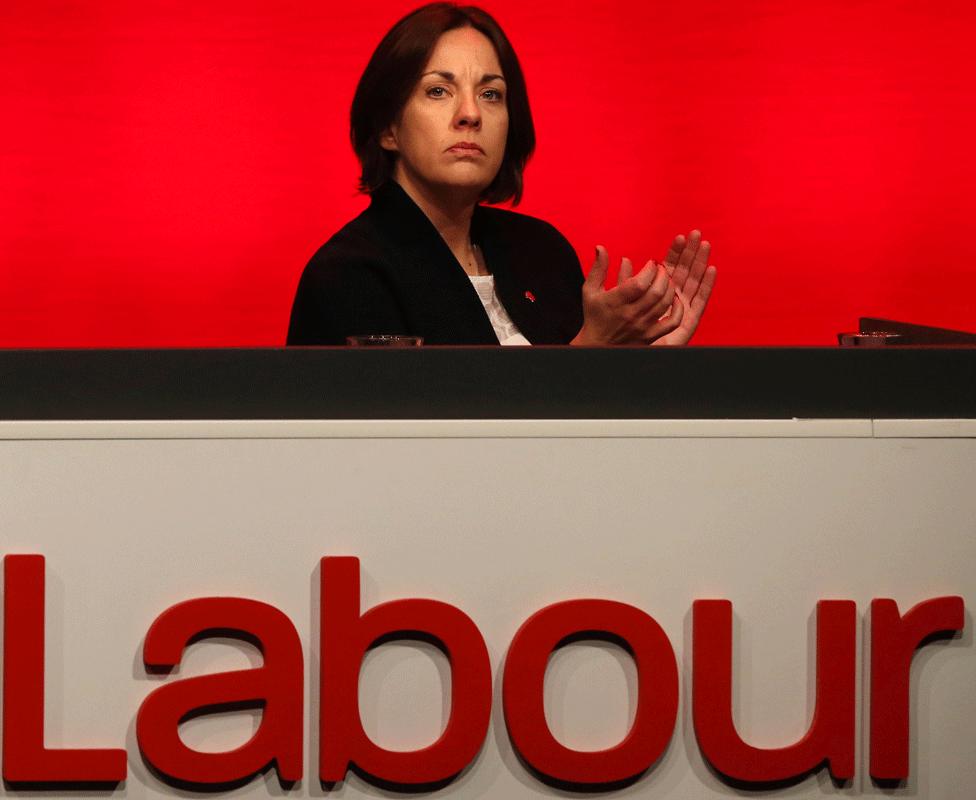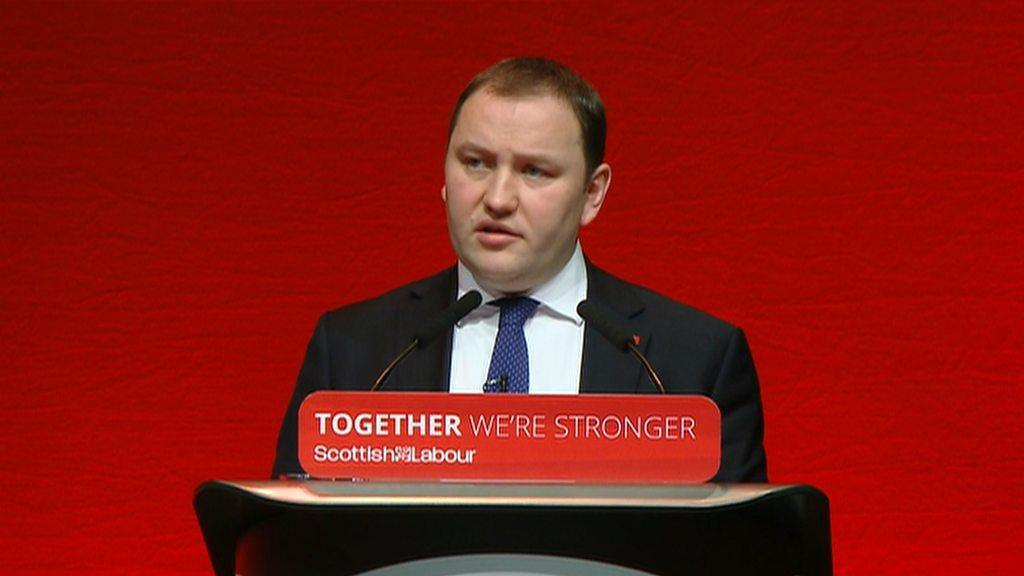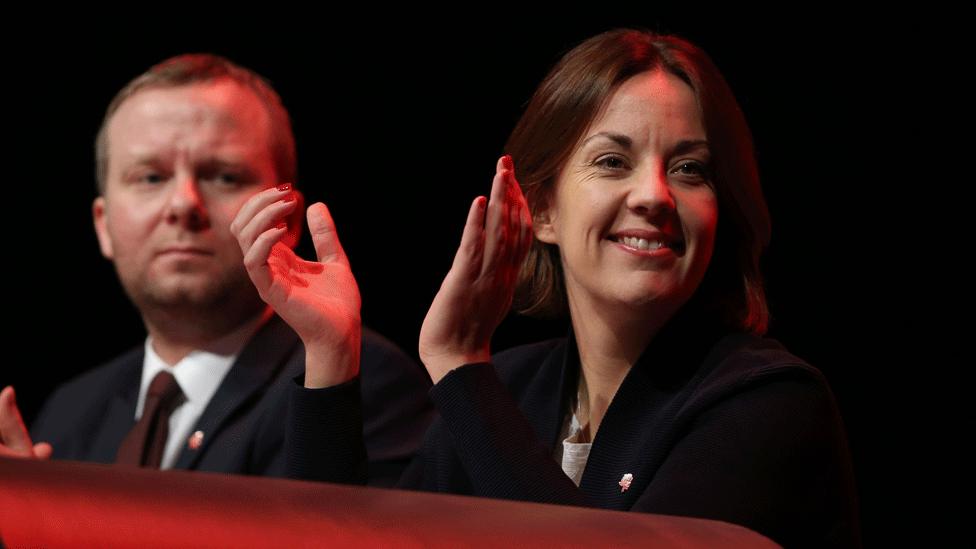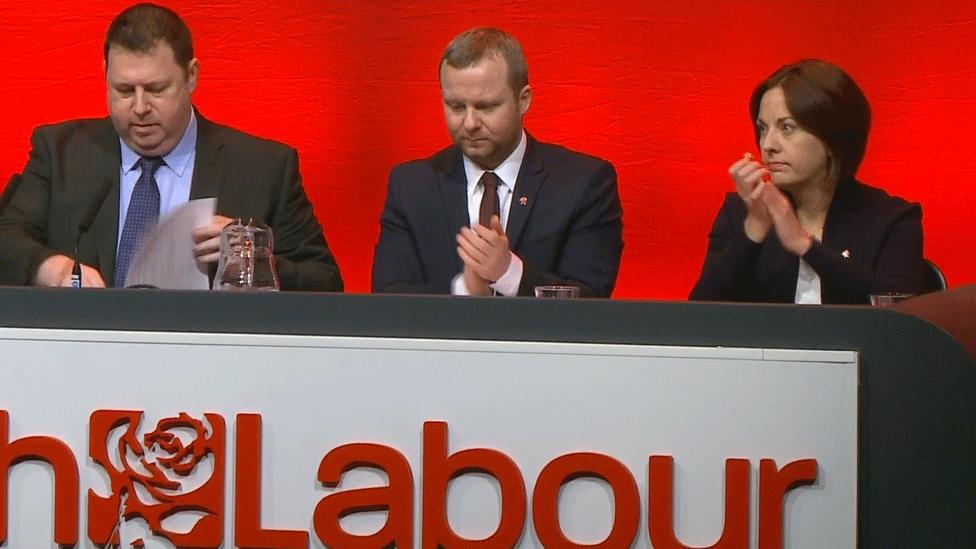What does Scottish Labour's federal plan mean?
- Published

Kezia Dugdale has for some time talked about a new Act of Union
A curious - yet significant - debate at the Labour conference in Perth. Speaker after speaker stressed that the topic, the constitution of the UK, was not natural or comfortable territory for the party.
One indeed said that she was "hacked off" at having to address the issue. She had hoped it had been consigned to neglect and oblivion by the outcome of the 2014 referendum on independence. She would rather talk about poverty and equality.
However, speaker after speaker acknowledged that the constitutional question showed no sign of going away. Sundry delegates said that there remained a fundamental division in Scotland over the constitution - and that Labour had to have a distinctive voice in that debate.
Which brings us to the second intriguing element of the debate. Labour's proposed solution is a federal UK. But what, precisely, do they intend to federate? Again, successive speakers acknowledged that it was impossible to offer a precise answer at this stage.
Why? Because there is no agreed formula and, more, no way of prescribing a structure for the governance of England to the good and sensible people of that nation.
Is that potentially weak? Labour strategists say no, that it can prove to be a strength, that it can engage the people of the entire UK in contemplating Scotland's place within a reformed Union.
That is because Labour in Scotland advocates a "people's convention" to meet, to discuss and to propose a form of federalism for the Union in advance of the next UK General Election. That discourse might, they envisage, result in a new Act of Union.
More regional government?
Which poses two further challenges. To repeat, what would be federated? The nations of the UK? But federating Scotland and England is like federating Connecticut and California. Scarcely comparable, it might be argued.
Might it then be, for England, a strengthened form of regional government? Perhaps. But it remains the case that there is relatively - I stress, relatively - little interest in affording priority to regionalism in England.
Plus enhancing English local government, without control of legislation or funding, would not be full devolution. It would not answer the West Lothian question for the Commons, posed by Tam Dalyell (whose memorial service was held today.)
However, look past all that. Presume that a people's convention can be established and motivated. Presume that it can develop a system of federalism that might work.
Labour's only Scottish MP, Ian Murray, calls on the party to 'seize the mantle of federalism'
In the interim, such a discourse, such a process would, arguably, give Scottish Labour its longed-for voice in the constitutional debate. They would not be supporting independence. Indeed, party leaders insist that the SNP have no mandate for a further indyref.
But they would not be backing the Tories in unalloyed support for a status quo Union either. On that, party leaders say there is no prospect of Labour again working in tandem with the Tories if there is to be a further referendum.
So the federalism discourse would, arguably, give Scottish Labour a distinctive voice in the constitutional debate. At the Daily Record fringe, Kezia Dugdale again stressed she did not want indyref2. Scotland did not need it. But, if there were to be such a debate, there might be a case for putting the federalism option on the ballot paper.
But to advance its case - whatever it ultimately proves to be - Labour needs power or, at the very least, to make sufficient gains to enhance its political influence in the wider constitutional debate.
And those overnight by-elections in England point the other way. The afternoon Q&A was dominated by questions inviting members of the Scottish party leadership to condemn the SNP in sundry ways.
Corbyn speaks on Sunday
But one speaker bucked the trend. He said, given the direction of politics in England, it had never been harder to campaign for Labour.
I put that point to various delegates. All welcomed the victory in Stoke. All deplored the defeat in Copeland. What, I asked, did it mean for Jeremy Corbyn's leadership?
Some said he should consider his position. Some said he was the solution, not the problem. Others said that the party must end division, regardless of their views. There could not be a continuing leadership contest.
The atmosphere here in Perth is one of semi-optimistic realism, driven by Ms Dugdale's own relentlessly upbeat approach. The party secretary Brian Roy caught that mood in a well-structured opening speech.
He reflected on the divisions and problems of the recent past but then argued that the party could advance by offering a new option on the constitution and vigorously contesting the SNP on issues such as the NHS and education.
We will hear from Kezia Dugdale tomorrow. And from Jeremy Corbyn on Sunday.
- Published24 February 2017

- Published24 February 2017

- Published24 February 2017
